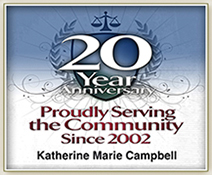Lessons Learned From Divorce: Curiosity Is Neither Capitulation Nor Compromise

Recently, I heard Tara Brach interview Krista Tippett about compassion.
So many gems in that interview paralleled my work as an Insight Mediator in San Jose California. In the interview, Krista talked about the larger divide in our country as she described anger as the public face of fear. Anger, masking fear, is constantly featured in the stories my family law clients tell. Krista Tippet believes that sincere curiosity and compassion will benefit our larger world. I believe that is also true for every divorcing couple.
Krista explained the initial challenge was to understand the underlying fear driving behaviors.
While we think we know, we don’t. To learn exactly what it is we do not know, we must keep quiet, take the anger being dished out and sit with our discomfort to be able to see the suffering and the fear. When we can do that, that’s when we learn more about our blindness and the fear.
This really struck a chord for me. A client recently attacked me and the mediation process. I defended and became part of the conflict. If I had just sat with the discomfort without defending, my client could have looked inward and been curious about what was happening for her. Instead, my defensive reaction meant I not only added to the conflict and made it about me but in her mind, it justified her attack. And, my defensiveness gave her a free pass to avoid being curious about what was happening for her. If instead I had instead shown compassion, we both would have gotten much more out of that session.
Krista describes compassion as deep listening with sincere curiosity, others might describe this as authentic curiosity.
The clear point, is that we cannot fake our way through curiosity. Clients know when we are truly curious, listening with interest, and without judgment. When we are doing our jobs well, we also help spouses be authentically curious about one another’s views and to listen without judgment.
She believes that ‘Nothing in our world will change until [we] can. . .refuse to see those who see the world differently as bad.’ This paralleled my family law work so well. It is so easy for our clients to ‘other’ their spouse. If they are not listening with deep, sincere curiosity, then their own agendas and narratives become the story. There is no space left to be curious about what is happening for their ex-spouse.
To get clients – and ourselves – away from the narratives that they or we create, we have to ask questions.
Maybe they are stupid questions that require us to be ok with awkwardness and discomfort; however, these authentic, curious questions are the right tools to help clients look inward and be sincerely curious. We also have to make literal and figurative space for our clients to feel safe enough to answer these sincere questions. Clients feeling judged find no space to be introspective or curious themselves. Krista suggested some questions to ask: ‘What do [you] admire in their position?’ “What gives [you] pause in [your spouse’s] position.’ These questions, originally designed for conversations at large, also work in a smaller divorce context because they shift the conversation out of value judgments of right or wrong and substitute authentic curiosity.
Also challenging are those times when think we are curious but we are not.
One way to know we are being curious comes from being surprised: ‘Being curious means that you are willing and wanting to be surprised. When we go into conversations wanting to be surprised we just might shift what is possible.’ This clear endorsement of leaving our problem-solving agendas at the door reinforces that we can’t be surprised if we already identified possible outcomes or choices. Looking for a surprise when we are questioning our clients means that our questions are more likely to be authentic and sincere curious questions.
The benefits of sincere and authentic curiosity without judgment means our lives – and for me, my job – feature greater compassion for others.
To do this successfully Krista urges us to ‘invest in connection and let go of our agenda. She also reminds us that ‘care and curiosity do not equal capitulation or compromise.’
Approach life with sincere or authentic curiosity and less judgment so we can connect with and develop greater compassion for one other. Only then will we truly see change in our world.

